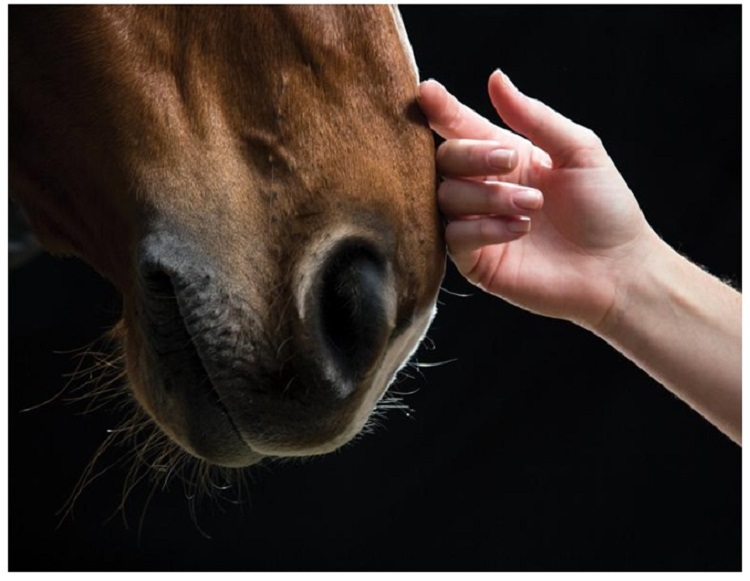There are elements of a horse’s lifestyle that can result in them experiencing stress or anxiety. Whether that’s with a change in routine or extensive travelling, it can have an impact on your horse’s overall health and well-being.
But there are ways you can reduce anxiety and the impact it can have, from feeding supplements, choosing the right horse feeds or establishing a consistent routine. . We’ll take a closer look at how to calm your anxious horse below.
What causes anxiety in horses?
Just like us, horses can experience anxiety throughout their lives, which can have an impact on their overall health. But what causes a horse to become anxious and stressed? There are a few factors that may result in your horse experiencing these feelings, such as:
- Changes in routine: As we know, horses are creatures of habit, so if you change their routine quickly, it could result in anxiety. For example, if they areused to being out in a field most of the time and you suddenly confine them to a stable for long periods they will experience stress.
- Poor diet: The way you feed your horse is essential and is important when it comes to maintaining psychological and physical health. As a herbivore, a horse spends a long time eating when in its natural environment. Feeding too little forage will reduce the time they spend eating which can cause significant issues
- Separation: Horses are herd animals, and being separated from the rest of the group, in the stable or even just alone in the field, can cause feelings of anxiety.
- Boredom: If your horse is regularly in its stable and not occupied sufficiently, you might find they start to pace or box walk and even weave from side to side. This is an indication that they are stressed because they are not able to exhibit their normal behaviours such as eating and roaming. Ensure your horse has stimulation if spending an extended period in the stable.
Issues caused by anxiety
A few conditions can be the result of a horse suffering from stress and anxiety, and whilst this can differ from horse to horse, you may find that prolonged anxiety causes weight loss in your horse, as well as ulcers or colic. Along with these health issues, you’re likely to find that your horse’s behaviour changes, which can help you to identify when they’re feeling anxious.
Tips for calming your horse
So, if you’ve noticed that your horse is becoming increasingly anxious, there are ways in which you can calm them and reduce the stress they’re displaying. Here are a few tips to help you manage an anxious horse.
Routine
Horses need a routine to feel comfortable – much like humans! If their routine has changed, or it’s not maintained every day, this is one of the main factors that can contribute to your horse’s anxiety. So, to manage this, make sure you keep up a daily routine with your horse. For example, feeding at the same time, and being in the stable for the same length of time, so that they can get used to this. When they get to know their routine, they will become more confident and comfortable.
Diet and Exercise
Feeding your horse correctly to ensure they’re getting the nutrients and energy they need can make a huge difference when it comes to reducing anxiety. Make sure your horse is getting enough forage, to maintain a healthy gut and to spend sufficient time eating as they would naturally. Make sure they’re getting enough exercise to stimulate them both mentally and physically, this can include working them from the ground such as lungeing or long-reining. Working over poles even laid on the floor can help to provide some more stimulation for your horse. .. Create a routine that keeps them on track and allows them to thrive.
Supplements
Along with these lifestyle and dietary changes, you can use supplements to help calm your anxious horse. They can be used to help reduce your horse’s stress levels and as a way of avoiding issues that might come with prolonged anxiety. There are a few ingredients that are common in these supplements, like magnesium and valerian, as well as tryptophan, which is associated with serotonin production. If you are thinking about using supplements, always check the ingredients as some can not be used if you compete under rules
